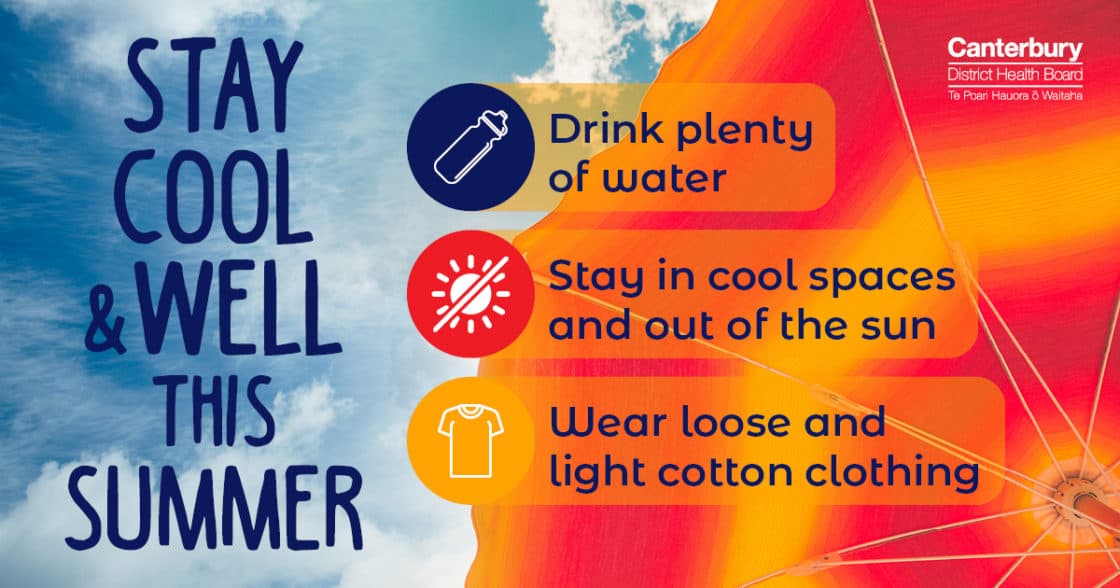THIS IS AN ARCHIVED PAGE. The advice and information contained in this page may not be current and it should only be used for historical reference purposes.

With Canterbury forecast to get a stretch of scorching temperatures over the next five days, Cantabrians are being urged to look after themselves
Cantabrians are being urged to keep cool and hydrated during what looks set to be the region’s first stretch of scorching temperatures.
Weather forecasters are predicting a run of at least five consecutive hot days, with temperatures between the high twenties to early thirties beginning tomorrow, with a forecast high of 31c in Christchurch.
Canterbury Medical Officer of Health Dr Ramon Pink says these higher temperatures can be harmful to our health and we must take care not to overheat.
“It's especially important to stay out of the sun where possible, avoid extreme physical exertion and ensure pets and people are not left alone in stationary cars.
“While we are all vulnerable to hot temperatures, some people are particularly at risk. This includes the elderly, infants and children, women who are pregnant, and people suffering from chronic, acute and severe illness,” says Dr Pink.
However, there are some simple steps that we can all take to reduce the risk to our health when the temperatures are high. They include:
- Avoiding going outside during the hottest time of the day
- Drinking plenty of water and avoiding alcohol and caffeine
- Wearing lightweight, loose-fitting, light coloured cotton clothes
Dr Pink says people whose work involves strenuous physical activity outdoors should be particularly vigilant to avoid overheating in hot weather.
“It’s important people exposed to hot weather for long periods of time carry water with them and sip at least half a litre an hour, allow for more breaks in the shade, reapply sunscreen every two hours and schedule the hardest work in the coolest part of the day.
“At home, everyone is advised to keep their houses cool by closing curtains on windows getting direct sun, opening windows to get a breeze if its cooler out than in, and consider using the cool cycle on heat pumps,” says Dr Pink.
If it’s not possible to keep your home cool, consider spending a few hours of the day in a cool place e.g. an air-conditioned public building, Marae or church, all of which tend to be cool in summer.
People should keep medicines below 25c or in the refrigerator (read the storage instructions on the packaging).
If you feel dizzy, weak or have an intense thirst or headache you may be dehydrated. Drink some water and rest in a cool place. If your symptoms persist or you’re concerned about your health or someone else's, seek medical advice. You can call your general practice team 24/7 for care around the clock – after hours a nurse can provide free health advice, and tell you what to do and where to go if you need to be seen urgently.
ENDS

